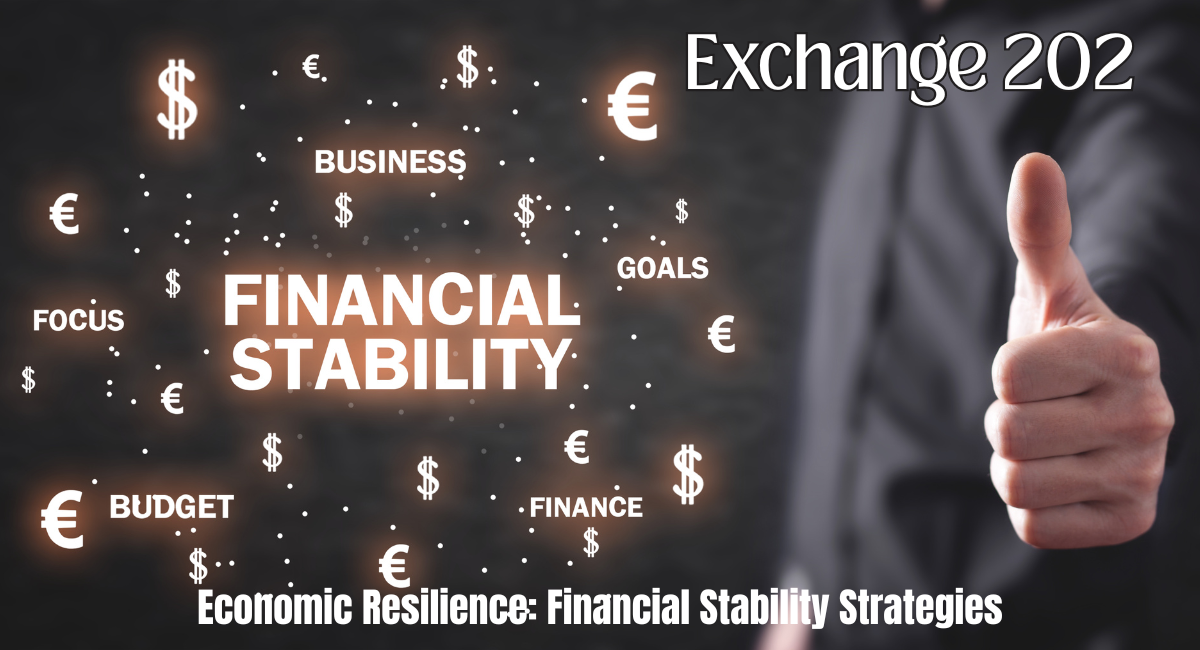Introduction:
Economic resilience is the ability to overcome financial setbacks and unanticipated problems. It’s essential to personal and community well-being, especially in a volatile economy. Build economic resilience to survive financial storms as an individual, family, or community. Economic resilience tactics and principles are covered in this article.
Understanding Economic Resilience
Economic resilience goes beyond a financial safety net and emergency reserve, which are crucial. It requires a mindset and habits that let you adapt and prosper under varied economic conditions. Economic resilience includes:
Financial Preparedness: Savings, investments, and insurance to cover unexpected expenses like job loss, medical bills, and natural disasters.
Adaptability: Adjusting financial strategy and lifestyle to changing conditions. Be open to new revenue streams and opportunities.
Responsible debt management, including lowering high-interest debt and using credit sensibly.
Resourcefulness: Finding alternate financial solutions and resources.
Community Support: Establishing a community support network to help and advise during tough times.
Key economic resilience strategies
Strong Financial Foundation:
Establish an emergency fund that covers three to six months of living expenses. This fund protects against medical emergencies and job loss.
Budget: List your income and expenses realistically. Spending tracking might help you save money and reach your financial objectives.
Regular savings and investments. To limit risk, diversify your investments and plan for retirement.
Insurance: Get health, life, disability, and homeowner’s or renter’s insurance.
Manage Debt Well:
Reduce High-Interest Debt: Pay off credit card bills immediately. High-interest loans can ruin your finances.
Avoid unnecessary debt: Be cautious when borrowing. Consider the long-term effects and whether it’s necessary or luxurious.
Student loans: If you qualify, refinance to decrease interest rates and explore repayment choices.
Income Diversification:
Multiple Income Sources: Diversify your income. Examples include side businesses, freelance jobs, rental income, and passive investments.
Invest in your talents and education to stay competitive in the employment market.
Retirement Planning:
Contribute to 401(k)s or IRAs. Utilize employer contributions and diversify your investments.
Long-Term Care Planning: Consider long-term care insurance or other financial goods for retirement.
Good Financial Practice:
Spend less and avoid debt. Responsible financial behavior includes living within your means.
Emergency Preparedness: Plan for natural catastrophes and other unanticipated events that could affect your finances.
Stay Informed: Follow economic trends, financial news, and investment opportunities. Choose wisely based on your financial goals and risk tolerance.
Community and Social Networks:
Build a help Network: Develop ties with family, friends, and community people who can offer emotional and practical help through difficult times.
Mutual Aid: Join or start community mutual aid groups. Emergency aid is available from these groups.
Innovation and adaptability:
Accept Change: Be flexible in your financial strategy. The ability to pivot and seek new options is valuable.
Continuous Learning: Stay current in a changing employment market by investing in your education and abilities.
Teaching Financial Literacy:
Teach Others: Teach family members about finances, especially kids and young people. Teach kids budgeting, saving, investing, and financial responsibility.
Challenges to Economic Resilience
Creating economic resilience is difficult. Common barriers are:
Income Inequality: Economic resilience is more difficult for those with lower incomes, making it essential to address income inequality on a societal level.
High Healthcare Costs: Medical expenses can significantly challenge economic resilience, particularly in countries without universal healthcare.
Lack of Financial Literacy: Many individuals need more financial knowledge and skills to build economic resilience effectively.
External Shocks: Unforeseen external shocks, such as economic recessions or global crises, can strain well-prepared individuals and communities.
Conclusion
Economic resilience is a dynamic and ongoing process. It’s not solely about accumulating wealth but about developing the financial knowledge, habits, and networks that enable you to thrive in different economic conditions. Building a solid financial foundation, managing debt wisely, diversifying income streams, and practicing responsible financial behavior can enhance your economic resilience and ensure a more stable and secure financial future. Moreover, contributing to the economic resilience of your community can lead to a more robust and supportive society for everyone.
